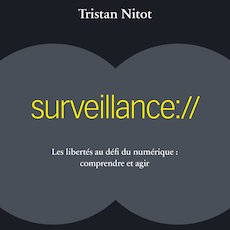Mozilla is not an easy thing to understand for people outside of the project: on one side, It's led by the Mozilla Foundation but competes with commercial vendors. It's Open Source, but very successful in the consumer space. There is a Mozilla Corporation, and thousands of volunteers. In a word, Mozilla is different. I've recently found 3 great interviews from Asa Dotzler, Mitchell Baker and Mike Shaver. Together, they won't precisely define what Mozilla actually is, but they may help. Here are a few excerpts:
Asa Dotzler about decision making:
Mozilla has from the very beginning had a very simple structure of modules. There's a cookie module, a JavaScript module, a toolbar module and so on. Each module has an owner, and that owner is the steward of that hunk of code. That owner has surrounded himself with a group of people we call peers. These are the people who have direct access to make changes to the code and who can assist the owner in getting the community involved. That's the decision-making group for that module. (...) Whenever there's a proposed change, those owners and peers go out and solicit comments and feedback from the community - this is all public, with everything on a wiki that anyone can comment on -- and use that feedback to hone or define their goals. But this is not design by democracy. We've never been a democracy at Mozilla. We're a meritocratic hierarchy. You don't get a voice by being a human, you get a voice by establishing a reputation for doing good deeds over time.
Mitchell Baker, about localization and community:
We have 40 or 50 groups around the world that not only create local versions, they do it as part of our development cycle. They're volunteers but they are dedicated to shipping professional software, and the deadlines can be brutal, but.... It's a lot of work to have an infrastructure that supports 50 or 60 languages on three platforms all QA'd and checked out on the same day. Most companies don't do it. We do. The majority of the people who use Firefox are not in the United States.
Mike Shaver about Mozilla Foundation being not-for-profit:
One of the luxuries of being a part of a nonprofit is that we’re not held against next quarter’s revenue numbers. We have only one shareholder, and they aren’t in it for the money. So, we don’t have to produce a return there. We’re really about making sure that we are creating software and a software culture that can last 10, 20, 70 years.





